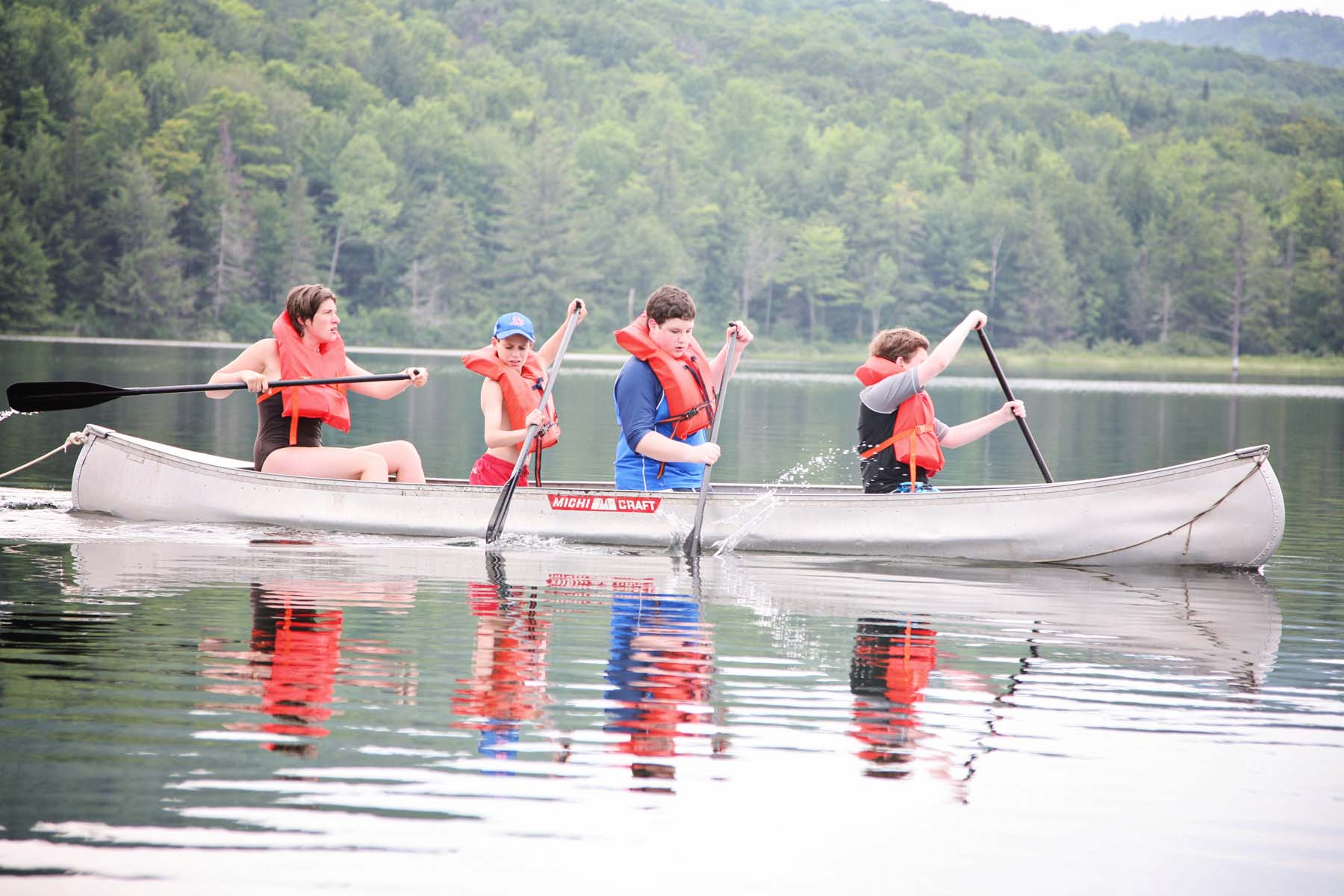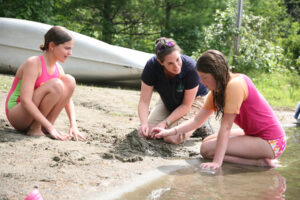
It’s widely understood that neurodivergent individuals, including those with autism, NLD or ADHD, often face unique challenges in navigating social interactions. It also goes without saying that a certain level of comfort with social skills is crucial for personal and professional success in today’s world. What seems to be less clear is how to best teach social skills to neurodivergent kids and teens.
Traditional methods of learning social skills often rely on neurotypical peer modeling, assuming that observing and imitating typical behavior will lead to successful social integration. When we started Camp Akeela in 2008, one of our foundational principles was that this concept of “modeling” in neurotypical environments had significant limitations.
Challenges with Neurotypical Peer Modeling
1. Lack of Relatability:
Neurodivergent individuals may struggle to relate to neurotypical peers due to fundamental differences in their cognitive processing. Neurotypical social behaviors and cues may be perplexing or overwhelming for neurodivergent individuals, making it challenging for them to internalize and apply these learned behaviors in real-life situations.
2. Non-Contextual Learning:
Neurotypical peer modeling often occurs in controlled environments, such as classrooms or therapy sessions, which may not mirror the complexities of real-world social situations. Neurodivergent individuals might struggle to generalize the learned behaviors to different settings, hindering their ability to adapt and apply social skills across diverse contexts.
3. Sensory Overload:
Many neurodivergent individuals experience sensory sensitivities that neurotypical individuals may not fully comprehend. Traditional peer modeling may not consider these sensory challenges, leading to difficulties in processing and implementing social skills effectively. Sensory overload can result in anxiety and withdrawal, hindering the learning process.
Neurodiverse Peer Modeling at Camp
The past 16 summers of leading Camp Akeela have only reinforced our belief that an immersive and specialized environment like camp can be a vehicle for more effective social skills development. Indeed, because Akeela is a community that is, specifically and intentionally, designed for our neurodivergent campers – and ALL of our campers fit that description – it is the perfect environment in which to pursue alternative approaches that lead to meaningful social growth.

Alternative Approaches That Work for Neurodivergent Children
1. Contextual Learning:
Instead of focusing solely on isolated skills in controlled environments, emphasizing contextual learning in natural, everyday settings can better prepare neurodivergent individuals for real-world social challenges. Interactive and immersive experiences allow for a more holistic understanding of social dynamics, promoting generalization and application of social skills, along with adaptability in various situations.
2. Neurodivergent Peers:
Providing neurodivergent individuals with peers who share similar neurodivergent profiles offers more relatable examples of successful social interactions. They are more motivated to build and maintain deep friendships when they share interests and experiences with others.
3. Individualized Social Skills Coaching:
Recognizing the unique strengths and challenges of each neurodivergent individual is crucial for effective social skills training. Tailoring interventions to address specific needs, such as sensory sensitivities or communication styles, ensures a more personalized and successful learning experience.
4. Near-Peer Role Models Who Are Trained As “Social Coaches”:
Summer camp counselors are in a unique position to have a positive impact on young people in their care. Because they’re typically 20 – 25 years old, they can relate to campers in a way that differs from parents and teachers. When they are carefully trained to provide social feedback and in-the-moment coaching, they can make a dramatic difference in their campers’ social skills.
While neurotypical peer modeling has been a prevalent method for teaching social skills, its limitations in catering to the unique needs of neurodivergent individuals cannot be ignored. Our campers benefit greatly from being surrounded by peers who experience the world in similar ways to them. They feel a sense of true belonging and acceptance, which allows them to be more open to receiving and implementing social feedback and coaching. When this happens in an environment that presents countless real-world challenges and scenarios, social skills don’t have to be “taught”. Instead, they are practiced in a way that breeds success and confidence, all of which help young people internalize and generalize those skills to other situations. Ultimately, this means more fulfilled and successful neurodivergent individuals — and a society that is lucky enough to benefit from their amazing and unique contributions!
Looking to learn more? We have a plethora of articles and resources for parents, and kids alike, to provide insights into the world of neurodiversity. Whether you are looking for book recommendations, life skill advice, or want to learn more about the importance of independence, check out our blog!



 Check out
Check out